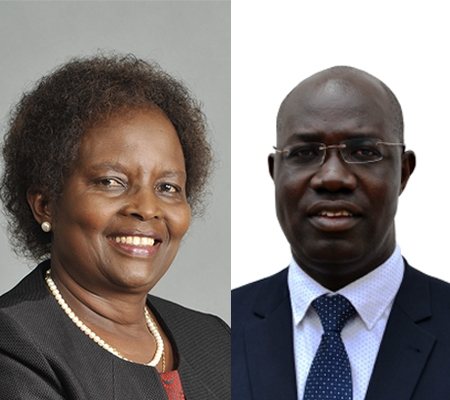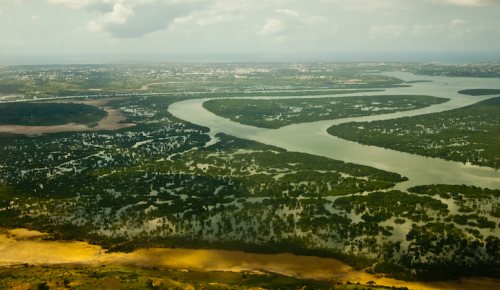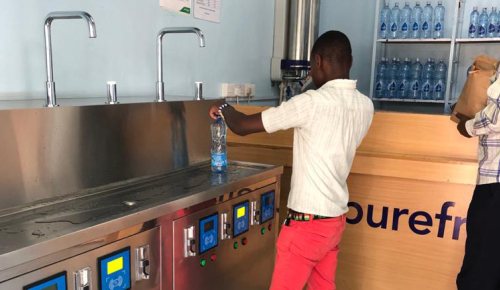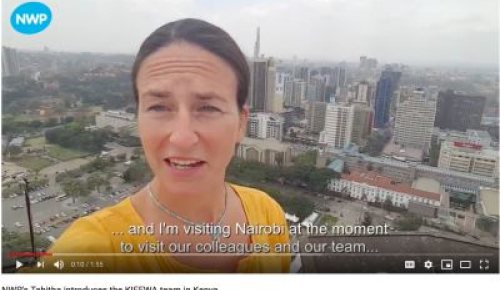News
12 May 2021Securing safe drinking water in Kenya through KIFFWA
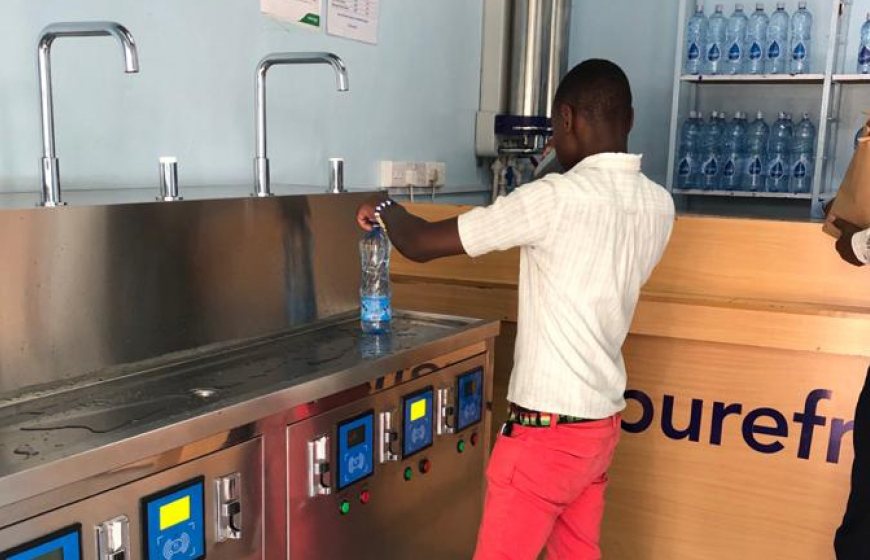
A Kenyan business that provides safe drinking water has secured funding to expand. It has done so with the help of the Kenya Innovative Finance Facility for Water (KIFFWA), a financing initiative supported by the Netherlands Water Partnership (NWP).
Purefresh, a Kenyan start-up supplying vending points for the sale of safe and clean water, recently closed its funding round for a first phase of expansion, enabling it to grow from a pilot area to sites across four counties. KIFFWA has supported the business since 2019 and has been instrumental in Purefresh being able to close this round through financial and technical support.
Securing financial close
The progress marks a success for KIFFWA. This NWP supported initiative helps businesses and projects in the water sector in Kenya develop, thereby contributing to the country’s progress towards meeting the UN Sustainable Development Goals (SDGs).
“It is always challenging to get projects from concept to financial close,” comments Joseph Murabula, CEO of KIFFWA. “For us to have progressed this part of the project to a financial close is an important milestone. It demonstrates that the model works, and it motivates other developers, as they can see this is actually doable. That is key for us.”
Purefresh is anticipating further expansion, first to additional counties in central and western Kenya, and then a move to national coverage. In the meantime, the close of the funding round represents the latest success for KIFFWA, which established its first few projects in 2018 and has steadily added to these since.
“The project combines the three ingredients that KIFFWA offers,” explains Murabula. These span funding support, technical expertise, and support on governance. In the case of Purefresh, KIFFWA also supported activities such as writing financial and risk management manuals, identifying technology suppliers, and helping with the roll-out of installations. “All three ingredients were successful in providing help,” he adds.
KIFFWA’s contribution
Purefresh’s progress illustrates what KIFFWA has brought to the water sector in Kenya – offering leading developers an opportunity to receive support to further develop their projects and businesses.
“We offer something extremely attractive to lead developers,” says Murabula. “We are the only ones providing early-stage risk capital to project developers in the water sector in Kenya. This is new and innovative, and we are the only ones who agree to risk-sharing – developers are not obliged to repay us unless the project succeeds in closing the financing it needs.”
Susan Mudhune is Chair of the KIFFWA Fund. “From the Board’s point of view, we have made good progress,” she says. “We have created awareness in the market that water projects can attract private financing. Also, the way KIFFWA was set up is a model that had not been experienced in the market before.”
Mudhune notes the hard work involved to date in getting to the current position, including setting up the initiative. “It was unprecedented – we could not copy and paste,” she says. She highlights KIFFWA’s good governance framework, reputable directors, strong management team, and efficient back office that supports the whole initiative.
Mudhune adds “We have attracted quite a number of requests for support from lead developers. That number shows that this area is now opening up to private money, and that proves that there is a need for this kind of initiative.”
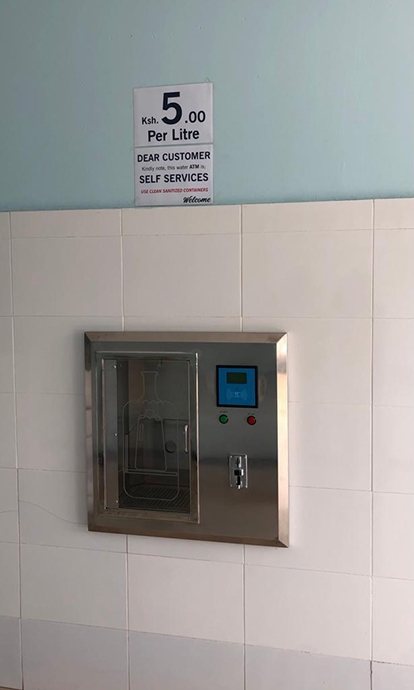
Private sector involvement in the water sector
Through projects such as Purefresh, KIFFWA is helping raise awareness of the business potential of the sector and the part that the private sector can play in making progress on the SDGs. Joseph Murabula sees that one of the biggest challenges to achieving further progress is cultural. “In Kenya, water has always been provided by public utilities so people expect it to be available at a subsidised cost or, in some instances, for free. The lack of sufficient public funding has made it difficult for projects to be developed on time,” he says. He explains that ultimately, the most vulnerable groups suffer the most and spend a higher proportion of their income on water to meet their needs.
“What we therefore need is a cultural change to accept privately financed water. Eventually you will have many more water projects and that will drive prices down and increase access,” he says, adding, “So you need that acceptance that water is like any other product, like power or food. It is something you buy using your own money and you budget for it.”
Securing funding
Murabula sees that this shift is under way, and that companies are increasingly seeing the water sector as one where there are opportunities.
“The number of projects is increasing year on year, as more private companies begin to realise that it is possible to develop water projects and make a commercial return,” says Murabula. “I think we have laid a very firm foundation for the future, and we are very optimistic in terms of the private sector deal pipeline continuing to flow.
Susan Mudhune shares this positive outlook. Looking forward, she highlights the importance of securing funding, describing it as “the biggest challenge”, but continues with “I am very optimistic about the future. Now we know what to expect and have experience in this line. We now know there is interest and there is need, so I believe that going forward will be much easier.”
